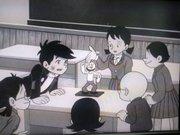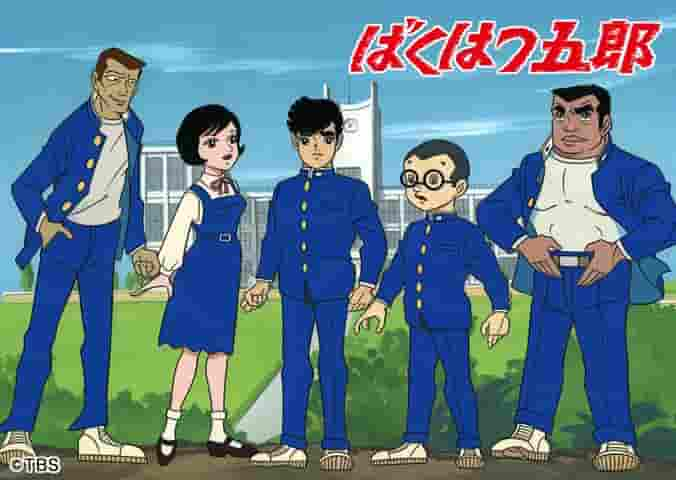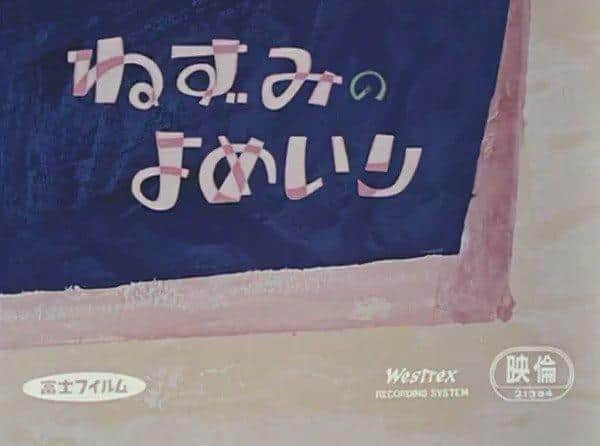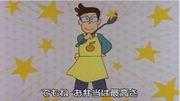'The Whirlwind of Harris' review: A perfect blend of action and story

Harris's Whirlwind - A masterpiece anime that swept through the whirlwinds of youthOverviewBroadcast from 1966 to 1967, "Harris no Senpuu" is a TV anime series based on the manga of the same name by Chiba Tetsuya. Set at the prestigious Harris Academy, the series is a youth action drama about the troubles caused by the delinquent boy Ishida Kunimatsu and his growth, and was loved by many viewers. A total of 70 episodes were broadcast from May 5, 1966 to August 31, 1967. It was aired on Fuji TV in a 30-minute slot every Wednesday from 7:00 to 7:30 p.m. ■ StoryIshida Kunimatsu is a delinquent boy who has been expelled from many schools due to his bad behavior. The principal of Harris Academy notices his outstanding athletic ability and encourages him to enroll, hoping to develop Kunimatsu's strengths. After enrolling, Kunimatsu immediately gets into trouble, but this leads to him receiving invitations to join sports clubs such as baseball, kendo, boxing, and soccer. With his natural athletic ability and cheerful personality, Kunimatsu leads each sports club to victory and becomes popular at the school. ■ExplanationThis is a youthful school action drama depicting the turmoil caused by the protagonist, Ishida Kunimatsu, a notorious thug at the prestigious Harris Academy. It is based on the manga of the same name by Chiba Tetsuya, and was aired in black and white. The name "Haris" in the title comes from Harris Co., Ltd., a confectionery manufacturer that sponsored the show. In 1971, about three years after the series ended, it was remade into a color TV anime, "Kunimatsu-sama no Otooridai," with a different production studio, staff, and some cast members. ■Cast
■ Main staff
Theme song
■ Main Characters
■Subtitle
■ Related works
■ Theme songs and music
■ Review"Harris no Senpu" was a work that created an era in the world of Japanese animation in the 1960s, and its influence has not faded to this day. The character of the main character, Kunimatsu Ishida, was fresh and attractive to viewers at the time. Although he was a delinquent boy, he was portrayed as valuing a sense of justice and friendship, which resonated with many children. Furthermore, the way Kunimatsu tries out various sports and grows together with his friends is portrayed as a symbol of youth. The appeal of this show lies above all in its storytelling. Each episode depicts a different sport or challenge, so the viewer will never tire of it. As Kunimatsu grows, the characters around him also gain more depth. In particular, unique characters such as Kunimatsu's younger brother Ah-bouya, Megane who adores Kunimatsu, and the strong-willed Ochara enrich the story. There are also many episodes that reflect the social background of the time. For example, there are episodes that show Kunimatsu aiming for the Nobel Prize and episodes that show his interactions with visitors from overseas, providing viewers with new perspectives. These episodes not only give children dreams and hope, but also serve as an opportunity to understand the diversity of society. In terms of music, the theme song of "Harris no Senpu" was very impressive, and the singing by the Gachatorians touched the hearts of viewers. The composition and arrangement by Keiichi Awano are an important element in enhancing the atmosphere of the work. In addition, the background music of each episode is also used skillfully in accordance with the development of the story, playing a role in enhancing the emotions of the viewer. The animation quality was also high, and P Productions' drawings were excellent, even considering the technical standards of the time. In particular, the depiction of the movements in the sports scenes and the facial expressions of the characters were visually very appealing and had the power to draw the viewer in. ■Recommendation"Harris's Whirlwind" is a masterpiece anime that depicts the brilliance of youth and the power of friendship. It is especially recommended for those who like sports and youth dramas. It will also be enjoyed as a valuable resource for those who want to know the history of Japanese anime in the 1960s. It is also a must-see for parents who want to teach their children the importance of a sense of justice and friendship. There is also a remake of this work, "Kunimatsu-sama no Otooridai," but the original "Harris no Suisen" is packed with the charm of the characters and the historical background of the time. Please enjoy comparing the two works. "Harris no Suisen" is an eternal masterpiece anime that gives viewers dreams and hope and makes them feel the brilliance of youth. |
>>: "Pirate Prince" Review: The ultimate story of adventure and friendship
Recommend
Fighting against the mysterious spontaneous human combustion! The official trailer for the new July series "Fire Force" is released
The TV animation "Fire Force" adapted f...
"White Snake 2: Rise of the Green Snake" new stills and theme song MV released
Recently, the official movie "White Snake 2:...
Let's take a look at the famous comics that have won Guinness records. Each of them is legendary.
Japan, a country that is a major producer of anim...
New Superman movie to be shot entirely in IMAX format
James Gunn says the new Superman movie will be sh...
Disney is considering rebooting Pirates of the Caribbean with Deadpool screenwriter
According to foreign media reports, the 15-year-o...
The second season of the TV animation "Jujutsu Kaisen" will be broadcast in 2023. New art images released
Today, September 18, the official TV animation of...
Legend of Crystania - Explore the depths of a fascinating fantasy world and characters
The Legend of Crystania: The Beginning of Adventu...
The appeal and reviews of Tokunana - Special Crimes Unit, 7th Division, Metropolitan Police Department
The appeal and reviews of Tokunana -Tokyo Metropo...
Mario movie title confirmed? Official title is no surprise
Co-produced by Nintendo and animation company Ill...
Wooser's Day-to-Day Life Awakening: A review that explores new appeal and depth
"Wooser's Day-to-Day Life: Awakening&quo...
DC Films' future plans will be more radical, with DC Extended Universe and Multiverse
Recently, DC Films President Hamada Walter said i...
The prologue of the comic "Assassin's Creed: Dynasty" is online today. The Assassin appears in Chang'an
The prologue of the "Assassin's Creed: D...
The appeal and reviews of "Ai Yori Aoshi: Enishi": A thorough explanation of the moving story and the depth of the characters
The appeal and evaluation of "Ai Yori Aoshi:...
New characters of "To My Immortal" are revealed and the second season of the animation will enter a new chapter
The second season of the TV animation of "To...
Rating and impressions of "I want you to show me your panties with a disgusted look on your face 2"
I want you to show me your panties with a disgust...









